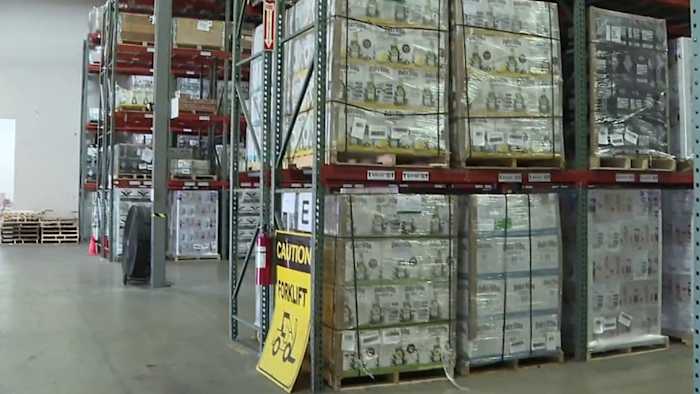SAN ANTONIO – From the clothes you wear to the cars you drive, a lot of what we all use every day comes from another country.
Walls of imported products from across the world are stored at Port San Antonio, but OpTech’s warehouse isn’t a typical one. It’s a Foreign Trade Zone.
Think of it like this:
-
A company orders shipments from overseas.
-
Instead of paying tariffs right away and before they sell the product, these goods are moved to a secure zone to be stored.
-
This zone is called an FTZ.
-
Businesses don’t have to pay taxes until their products leave this zone.
David Vequist, a professor of management in the H-E-B School of Business and Administration at the University of the Incarnate Word, said this gives local sellers more control over the supply chain.
“We’ve been seeing an increasing amount of economic activity in these trade zones,” Vequist said. “I think the Foreign Trade Zone also extends San Antonio as a presence on the international scene.”
Maru Costa is the chief operations officer for Susto Mezcal out of Austin. They work with OpTech.
“It helps us logistically,” she said. “Our main markets are Austin, San Antonio, Dallas, Houston and Corpus Christi.”
Costa said the zone has been great for their operation “because it helps with our cash flow.”
A map from the governor’s office shows 35 FTZs in Texas as of 2024, and it’s quickly growing.
“There’s a lot of product that comes in,” Louis Miorelli, the chief operating officer of OpTech, said. “We will now have almost 200,000 square feet.”
OpTech stores a wide range of products, from alcohol to plastic to O-rings for spaceships. Max Navarro III is the president of OpTech, and the business has been in his family for three generations.
“Instead of paying (tariff costs) all up front, (businesses) can pay it metered out to when the customer pays for that product, that’s when they’ll pay the duty,” he said.
He said it helps San Antonio.
“It helps bring more and more businesses here,” Navarro said. And, for people shopping in the city, “their products will be cheaper at the end of the day.”
With tariff talks happening across the world, Navarro said his team has been busy.
“We’re getting a lot of phone calls from that recently and a lot more demand,” he said.
An economic impact study released in May revealed Port SA has brought the state of Texas $9 billion. On Friday, a new update on economic impacts from the Port is expected. KSAT will cover the reveal.
Read also:
Copyright 2025 by KSAT – All rights reserved.
